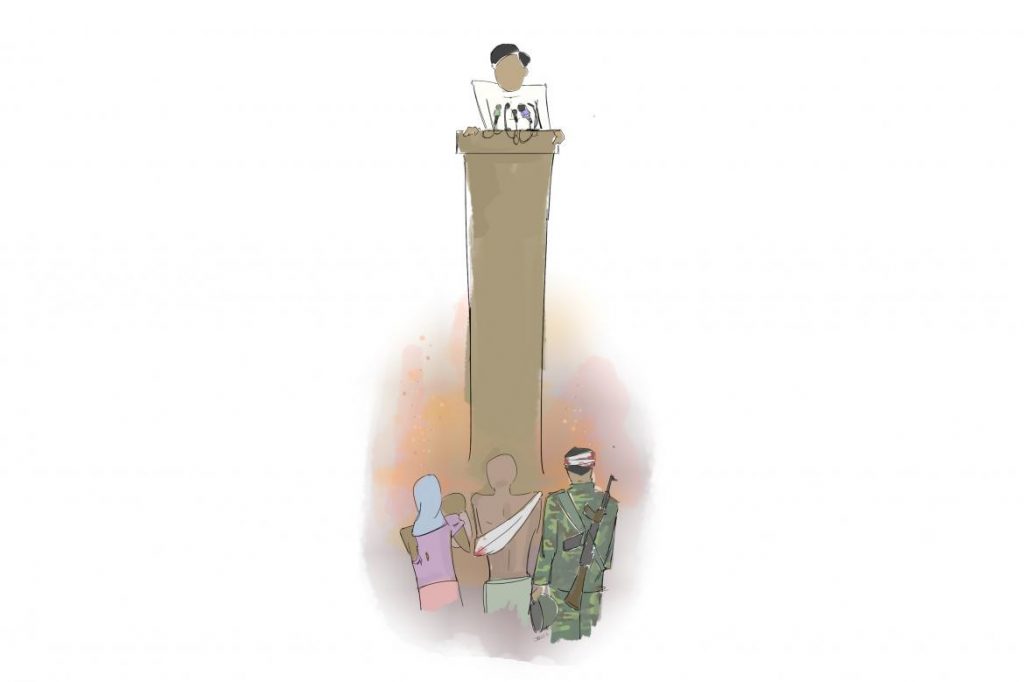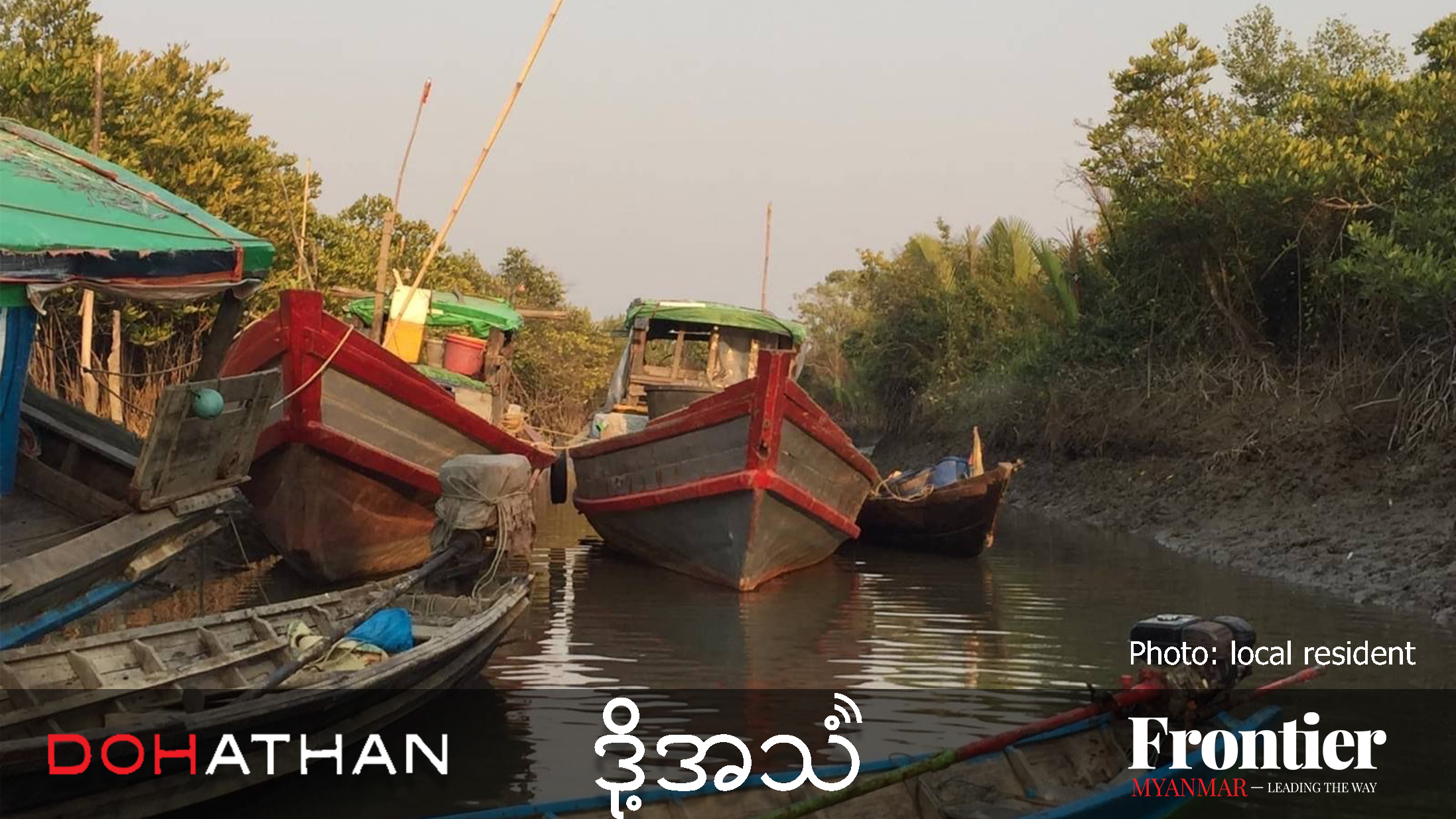Unless the real facts on the ground are allowed to emerge, there should be little surprise that the military’s version of events will continue to be brought into question.
Persecution, apparently, is in the eye of the beholder. On October 25, Frontier ran a story on the United Nations’ call for a probe into summary killings and arson attacks reported in Rakhine State in the aftermath of last month’s attack on security forces. Alongside it was a photo of children in Maungdaw’s Hpar Wut Chaung village. Rather than speak on the substance of the allegations — described by the UN Special Rapporteur on Extrajudicial Killings as “alarming and unacceptable” — several responded by asking why the international community was not doing more to promote birth control in Rakhine’s Muslim community.
Leaving aside the fact that sexual and reproductive health programs are one of the few kinds of humanitarian assistance the government has permitted in northern Rakhine State, it should surprise few observers by now that there is a deep-seated, widespread and trenchant hostility to the Muslim community in this country, and particularly those living in northern Rakhine.
Every journalist in this country, local and foreign, is acquainted with this hostility. The sad truth is that many dread writing about Rakhine State for fear that the abuse and threats that are an everyday reality for many Muslims in this country will be directed against them.
Numerous reporters have privately spoken of self-censoring to avoid the weight of the possible backlash against uncomfortable truths. Others have sought to publish only to be overruled by their editors, fearing the revocation of their printing licenses with the stroke of a ministerial pen. In this climate, any attempt to establish the facts on the ground is a courageous endeavour.
So it was with great disappointment, but unfortunately not surprise, that last week we saw President’s Office spokesman U Zaw Htay single out a journalist on social media and denounce their investigation of reports that Muslim women had been raped by security forces in the ongoing Maungdaw crackdown. The reporter had cited sources on the ground, but immediately conceded that independent verification of the report was impossible because of restrictions on access to the area.
Support more independent journalism like this. Sign up to be a Frontier member.
One of the reasons Zaw Htay appeared to take umbrage at the journalist was that he was not quoted in the course of her reporting. (Ironically, alongside the article he had taken exception to, Zaw Htay posted an excerpt from a Reuters in which a team on the ground in Maungdaw appeared to corroborate the rape allegations.) But the spokesman, who formerly worked in the office of President U Thein Sein, has himself been accused by The Irrawaddy of inflammatory statements on Rakhine, having made a number of social media posts that “fuelled tension” during the 2012 communal violence in the restive state that claimed some 200 lives.
The journalist in question, Ms. Fiona MacGregor, has a reputation for tenacity and integrity among her peers, along with extensive experience reporting on Rakhine State. The government’s record is considerably more ambivalent. State media has claimed that there is no humanitarian crisis in Rakhine State and there are no restrictions on the movement in Muslims in the area: The 50,000 people who lost their access to food aid last month might beg to differ.
Of course the October 9 attacks were deplorable and the perpetrators should be brought to justice. The actions taken by the attackers should be loudly condemned for setting back some of the tentative progress that appeared to have been made in improving relations in Rakhine State. However, it is not only malicious, but also dangerous, to suggest that any person who dares question the official accounts emerging from Rakhine is a threat to the country. Especially when independent accounts are almost impossible to be heard because of the strong security measures put in place by security forces.
If authorities are totally confident in their accounts about the situation in Rakhine State right now, they should immediately allow independent observers into Maungdaw and the surrounding areas.
Unless the real facts on the ground are allowed to emerge – from journalists as well as humanitarian groups – then there should be little surprise that the military’s version of events will continue to be brought into question.
This editorial originally appeared in the November 3 edition of Frontier. Since it was published, Frontier has learned that the Myanmar Times terminated MacGregor’s employment. Read our story here.







